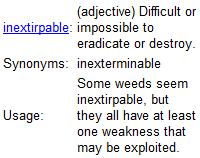CHANNEL BAKER, Plaintiff, v. SIZZLING PLATTER, INC.; SIZZLING PLATTER, L.L.C.; all entities dba Red Robin and dba Red Robin Layton; and JOHN DOES 1-5, Defendants.
Case No. 2:06cv1045
United States District Court for the District of Utah, Central Division
2007 U.S. Dist. LEXIS 90044
December 6, 2007
Magistrate Paul M. Warner
Defendant contends it has made diligent and good faith, but futile, efforts to work with Plaintiff and her counsel regarding various discovery matters. Accordingly, Defendant asked the court for an order: (1) compelling Plaintiff to respond to Defendant’s First Set of Interrogatories and First Requests for Production of Documents, (2) compelling Plaintiff to appear for a deposition at the offices of Defendant’s counsel within thirty days after service of Plaintiff’s responses to the discovery requests, and (3) sanctioning Plaintiff and her counsel by requiring them to pay Defendant’s reasonable costs and attorney fees incurred in connection with the motion.
Plaintiff did not contest the appropriateness of the court compelling responses to the discovery requests and compelling her appearance for a deposition in Utah. Accordingly, the court granted Defendant’s motion to compel and ordered Plaintiff to provide responses to the discovery requests within fifteen days. Plaintiff was also ordered to appear for a deposition in Utah within thirty days after service of her discovery responses.
Plaintiff does, however, contend that sanctions are not warranted in this matter because (1) Plaintiff’s counsel has attempted to work with Defendant’s counsel to comply with Plaintiff’s discovery obligations; (2) Plaintiff resides in Texas and the requested documents
are in storage in Utah; (3) Plaintiff’s current employer does not allow her to take leave for the purposes of being deposed; and (4) Plaintiff offered to appear for a deposition in Texas, which was refused by Defendants.
Regarding sanctions, the court held:
“The court has determined that Plaintiff’s excuses are entirely without merit. Plaintiff chose to sue Defendant in this forum. The fact that she now lives in Texas is of no moment to the court. Plaintiff has an obligation to cooperate in discovery. It is her responsibility, as the plaintiff in this matter, to aid her counsel in moving this case forward. She has utterly failed to do so, and the court concludes that sanctions are appropriate.” The sanctions to be issued by the court will consist of defendant’s attorney fees incurred in bringing defendant’s motion to compel.
So who is actually going to pay the sanctions?
“While the court finds that Plaintiff’s counsel could have been more diligent in obtaining the requested information from Plaintiff, the court concludes that it would not be appropriate to require Plaintiff’s counsel to pay the attorney fee award. Instead, Plaintiff shall be responsible for paying the award.”

Dealing with Metadata in the Non – Discovery Context
Posted April 7, 2008 by H. Craig Hall, Jr.Categories: Civil, Craig's commentary, Criminal
Tags: Metadata
The Utah Bar Journal published an article I drafted: “Dealing with Metadata in the Non-Discovery Context.”
Metadata is truly a trap for the unwary.
Comments: 1 Comment